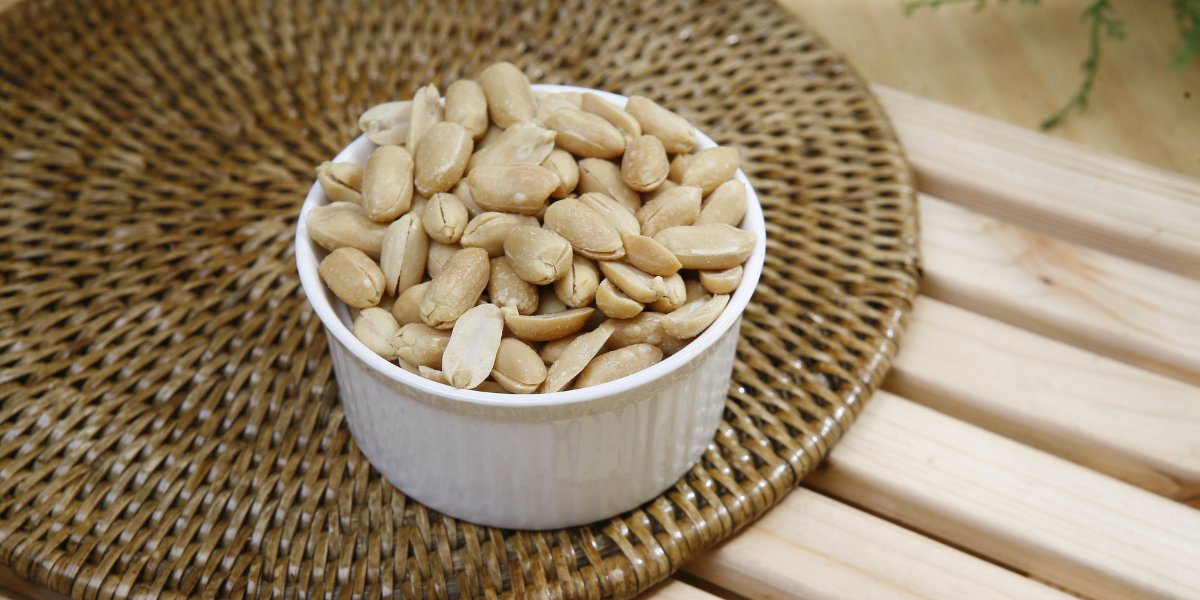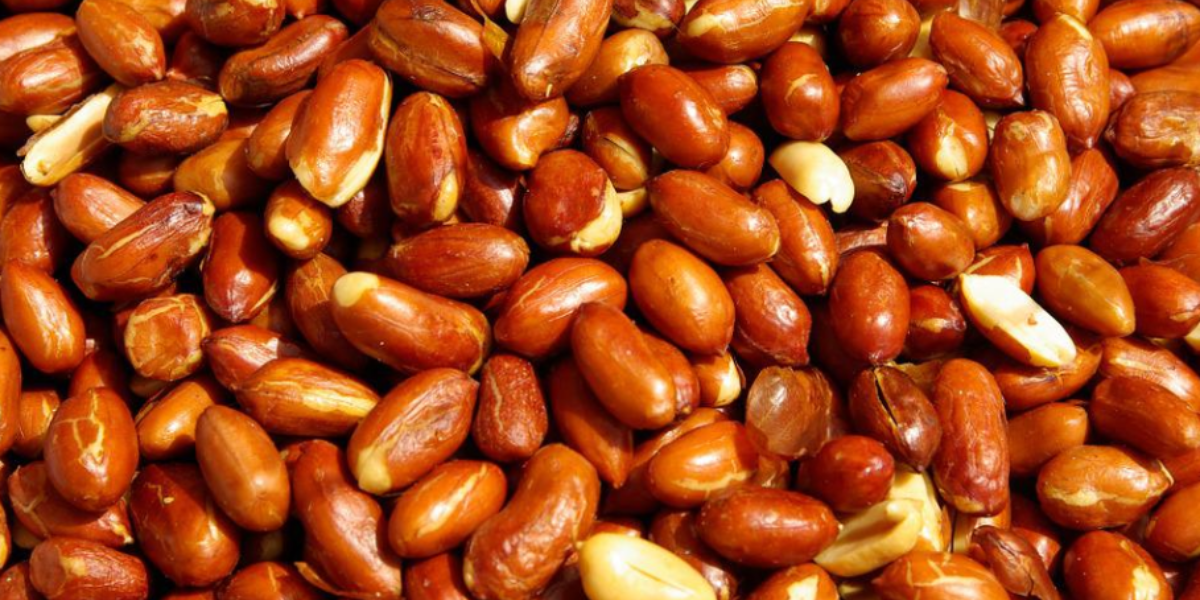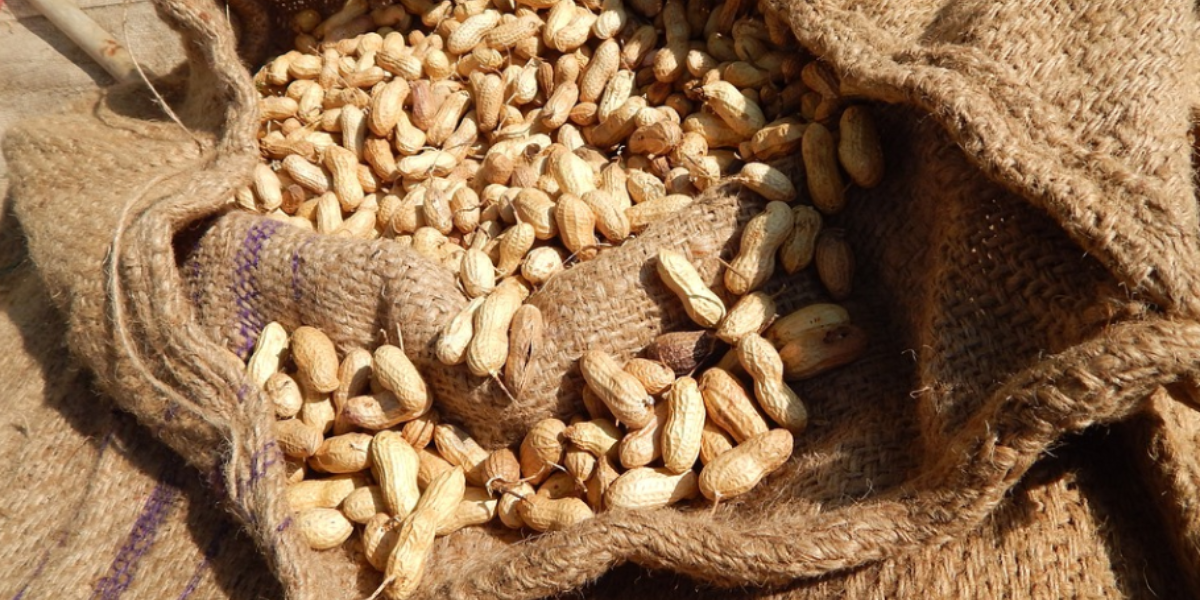If you’re looking for a quick but healthy snack, peanuts should be an excellent choice for you. In addition, peanuts taste so delicious that you find it hard to stop eating them!
However, consuming peanuts can cause you to experience some digestive issues. Are peanuts hard to digest? You’ll know in a bit.
Peanuts: Background Info

Peanuts (Arachis hypogaea) are a type of legume that originated in South America. They have several names such as earth nuts, groundnuts, and goobers. Peanuts can be eaten raw, roasted, or in the form of peanut butter.
Peanuts are found in products such as peanut flour, oil, and protein. They are, in turn, used in making a variety of foods like cakes, desserts, sauces, and snacks.
In the US, there are four basic types of peanuts: Virginia, Runner, Spanish, and Valencia. Each type has its own distinctive size and flavor. Among the four, runner peanuts taste delicious, are great for roasting, produce high yields, and are most often used in making peanut butter.
As for nutritional value, peanuts are a good source of protein, fiber, and healthy fats. They are high in niacin, thiamine, folate, and vitamin E and also contain significant amounts of copper, biotin, arginine, magnesium, and manganese.
Of course, being chock full of nutrients, it follows that eating peanuts would also have the following health benefits:
- Helps prevent heart disease
- Lowers cholesterol levels
- Reduces risk of heart attack or stroke
- Boosts energy
- Helps prevent gallstones
- Lowers risk for diabetes
- Reduces inflammation
- Improves hair health
- Contains antioxidative properties
- Helps treat erectile dysfunction
Are Peanuts Hard To Digest?
Contrary to popular belief that they are nuts, peanuts are instead classified as legumes along with chickpeas, lentils, soybeans, garbanzo beans, and other beans. But are peanuts hard to digest? Unfortunately, they can be, and here are some of the reasons why.
-
Legumes increase gas production.

It takes 2.5 to 3 hours to digest peanuts. Peanuts are quite hard to digest because they are legumes, and legumes cause gas. Therefore, all legumes should be eliminated from your diet if you are experiencing gastrointestinal symptoms such as abdominal pain, nausea, or diarrhea after eating them.
-
You have peanut intolerance or peanut allergy.
Peanuts may be a delicious and healthy snack but many people have mild to severe reactions after eating them. In this case, you may be peanut intolerant. So how can you tell that you are? Here are some signs of peanut intolerance:
- Nausea
- Vomiting
- Abdominal pain
- Diarrhea
- Gas
- Heartburn
However, you have to make sure that what you have is not a peanut allergy which is a more severe form of peanut sensitivity. Peanut allergy and peanut intolerance share a lot of common symptoms but there’s a way to tell them apart.
In response to the proteins contained in peanuts, peanut intolerance involves the digestive system with purely digestive symptoms while peanut allergy involves the immune system and may manifest not only digestive symptoms but respiratory and dermatologic as well. It is particularly important to watch out for potentially deadly anaphylaxis when you have a peanut allergy.
-
Peanuts are high in fiber.
An ounce of dry roasted peanuts (around 1 handful or 28 nuts) contains approximately 2 grams of dietary fiber. Generally, fiber is good for the gastrointestinal tract because it keeps bowel movements regular and slows down digestion so that you feel full longer and process nutrients better.
However, when you’re not used to consuming a lot of fiber but suddenly do, it can give you digestive problems. According to the Mayo Clinic, women should have at least 21 to 25 grams of fiber per day while men should try for 30 to 38 grams per day. When the fiber intake far exceeds the recommended amount, digestive symptoms such as gas, bloating, and diarrhea begins to appear.
Fiber is a type of carbohydrate that can be difficult for the human body to digest. After plant-based foods such as grains, fruits, and vegetables are eaten, your body digests everything -except fiber. When consumed, fiber undergoes fermentation in the large intestines and the byproduct is gas. In fact, a high fiber intake can increase gassiness.
-
Peanuts contain phytate.

Peanuts contain phytate, also known as ‘phytic acid’, a substance found in plants that store phosphorus that the plant needs for growth. Phytic acid is known as an ‘anti-nutrient’ because it binds minerals in the gut, such as calcium, magnesium, zinc, and iron, hampers their absorption, and promotes mineral deficiencies.
Phytic acid also inhibits digestive enzymes which interfere with the proper breakdown and absorption of carbs, fats, and proteins. Eating enough phytate-containing foods can make you develop gas and bloating.
-
Peanuts contain lectins.
Peanuts, along with other raw legumes, contain the highest amounts of lectins which are proteins that bind to carbohydrates. Lectins are also considered to be an anti-nutrient because they interfere with the absorption of minerals like calcium, phosphorus, zinc, and iron.
Lectins can also bind to intestinal cells lining the digestive tract which disrupts the breakdown and absorption of nutrients and affect the growth and activities of gut flora. Fortunately, peanuts do not have the harmful type of lectin known as ‘phytohaemagglutinin’ but they can still cause milder side effects such as bloating, gas, stomach upset, and diarrhea.
-
Peanuts are high in fat.
An ounce of peanuts can provide about 14 grams of fat. Therefore, peanuts contain a high amount of fats which slows down digestion. Admittedly, most of them are known as “good fats”. However, when fat is consumed, the body has to work extra hard to digest food, and gas may become trapped in the gut. The colon may also secrete more water into the digestive tract which also leads to more watery poop.
Fortunately, not everyone has trouble digesting peanuts so eating them should not be a problem for most people.
Conflicting Findings

With regards to the benefits of eating peanuts, there are some contradictory findings as to whether they help with weight loss or contribute to weight gain.
A survey involving 760 participants made up of general practitioners, nurse practitioners, and dietitians in New Zealand that was published in 2017 revealed that they prefer to recommend eating tree nuts like almonds, cashews, and walnuts over peanuts. This is because they regard peanuts as “slightly less healthy” than tree nuts since an ounce of roasted peanuts contains 166 calories and 14 grams of fat which contribute to weight gain.
On the other hand, a 2017 study revealed that although peanuts have high fat content, they are rich in healthy types of fat, along with proteins and fiber which take longer to digest and actually help with weight loss. The key is to consume peanuts in moderation which can help control hunger pangs without the weight gain.
In A Nutshell

Peanuts are nutrient-dense, tasty, and make for a healthy snack. As a matter of fact, peanuts are only second to almonds in protein count. But there can be some downside to eating peanuts.
In addition, aside from the allergy, peanuts have not been linked to many adverse effects. But are peanuts hard to digest? Definitely yes, but only to some people and we have enumerated some of the reasons why they are.

